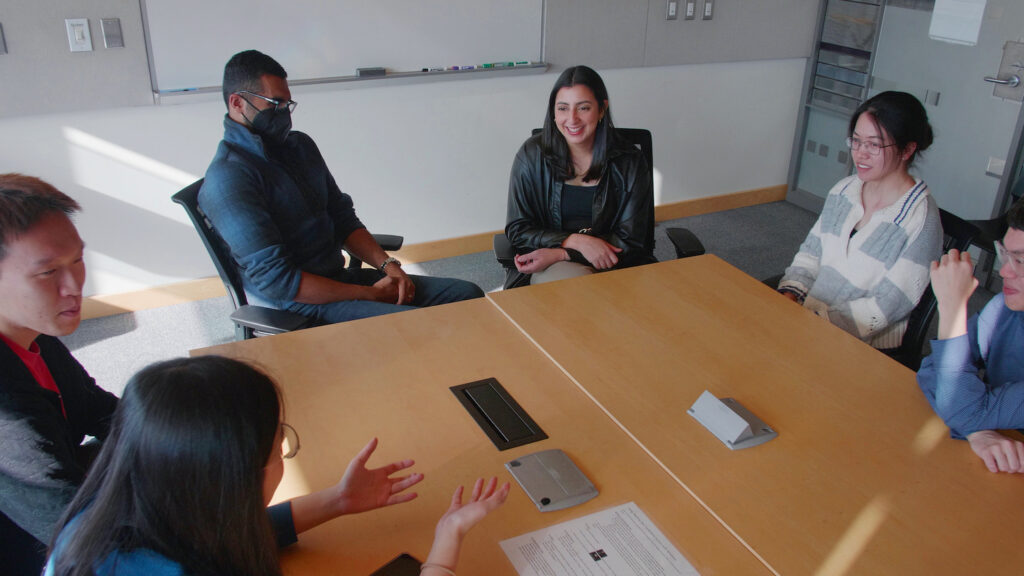Diversity and inclusiveness are an essential part of the pursuit of AI at CSE
The field of artificial intelligence has a diversity problem. Whether it be ineffective facial recognition technology for people of color or the implicit bias of model trainers, the consequences of not considering underrepresented groups when designing products or services that are driven by AI have tangible effects on the technology’s usefulness. From data producers and data annotators to end users and the researchers themselves, the creation and implementation of AI will be more equitable and representative when including participation from diverse teams with multiple viewpoints and experiences.
In CSE, the Michigan AI Lab has been intentionally working to create a more inclusive and welcoming environment into the study and practice of AI. Because of the historical barriers to success experienced by women and underrepresented groups in computing, the lab has taken steps to increase access with the aim of expanding the range of identities in research and ultimately impacting the trajectory of AI implementations in the world.

As a result of these efforts, the faculty affiliated with the AI Lab represent a broad set of researchers. Nearly half of the lab’s faculty are women, much higher than the global average of 16% as reported in the 2021 AI Index Report. In addition to increasing the ratio of women in its faculty membership, the AI Lab has also made a conscious effort to improve its climate and create more inclusive and productive engagements with students, faculty, and the broader community of AI practitioners and users.
According to PhD student Sarah Jabbour, “The Michigan AI Lab is always there to support us and remind each other that it’s a marathon and not a sprint here. Being a woman in computer science is definitely challenging sometimes. Because you don’t see a lot of women in the field, sometimes it can feel like you don’t belong or you’re not qualified enough. But the AI Lab has a faculty that is 50% women, which is really inspiring. They’re the role models we look to to say, ‘Hey, it’s possible to have a career in research as a woman in AI.’”
Michigan AI Lab Director and Janice M. Jenkins Collegiate Professor of Computer Science and Engineering Rada Mihalcea agrees. In regard to diversity in AI, she states that “Being aware of the role of diversity is critical for the quality of what we build. We are limited by our own experiences, and that’s why we need everyone at the table — people with different backgrounds and diverse life experiences, who only by working together as a group will be able to find the best possible solutions and build the best possible systems for a diverse world.”
The AI Lab is active in many dimensions in engaging with multiple audiences to increase understanding and collaboration. Since 2019, it has held “Friday Night AI,” a series of community outreach seminars in conjunction with the Ann Arbor District Library. Beginning in 2018, the lab has brought together researchers from within the university and industry practitioners via its annual AI Symposium. In early 2021, the lab began a new collaboration with Michigan Medicine to support and grow research in AI and health. Called e-Health and Artificial Intelligence (e-HAIL), the initiative is focused on collaboration, grant development, and infrastructure to support a multi-disciplinary and diversified approach to innovations in healthcare and AI methodologies.
Santiago Castro, a PhD student in the AI Lab, says, “I like being at the Michigan AI Lab because there’s a diverse group of people I can learn from. They share their point of view and realize how things could be done in a different way. Even though some cultures are more represented than others, many minorities are present and it makes me feel like I belong.”
While the AI Lab has made significant progress in building a diverse and inclusive community, more work is left to be done. Both the Michigan AI Lab and CSE as a whole are focused on community and aim to broaden participation and increase the diversity of the student and faculty populations. Of this, Mihalcea says, “We’re headed in the right direction.”
 MENU
MENU 
